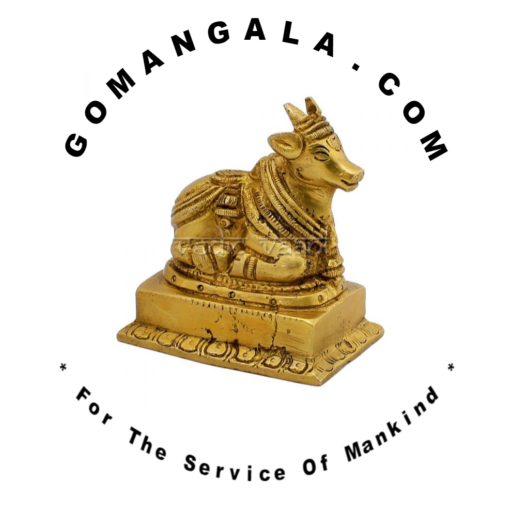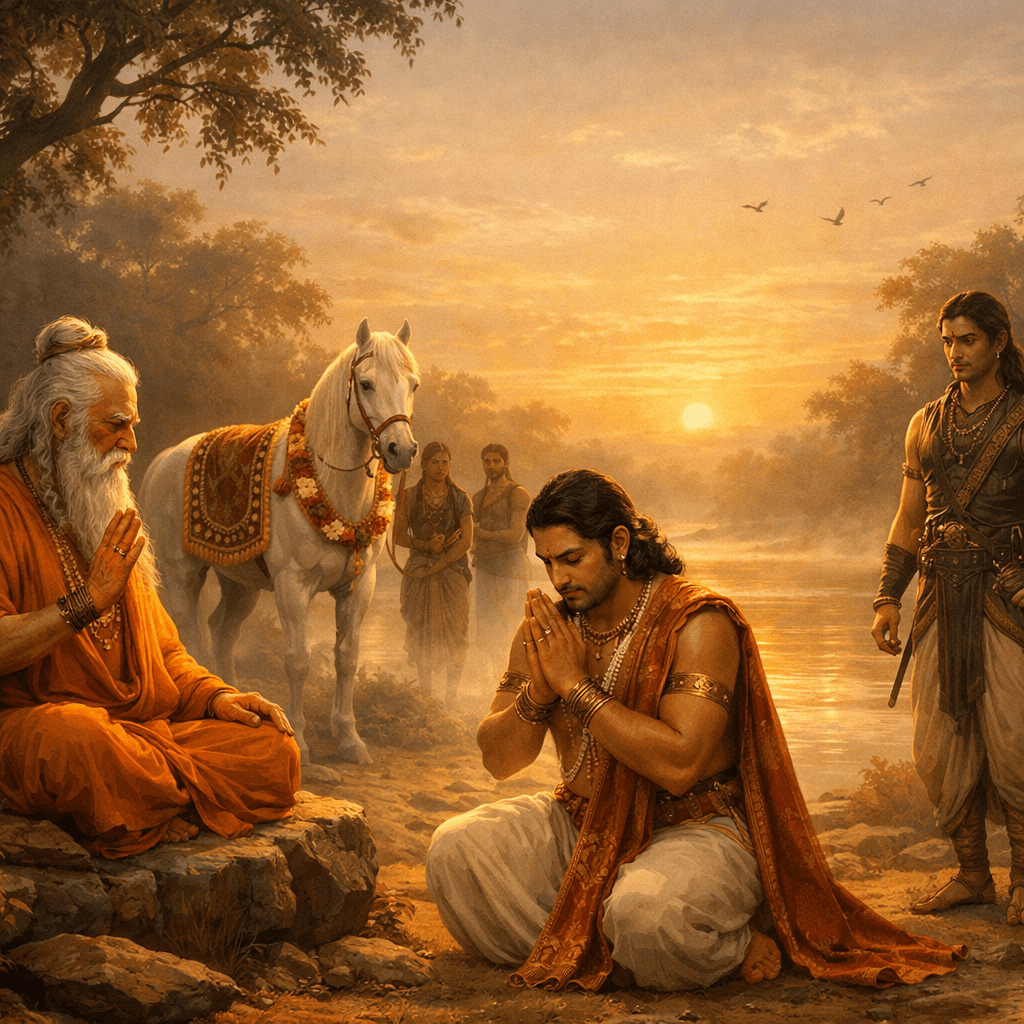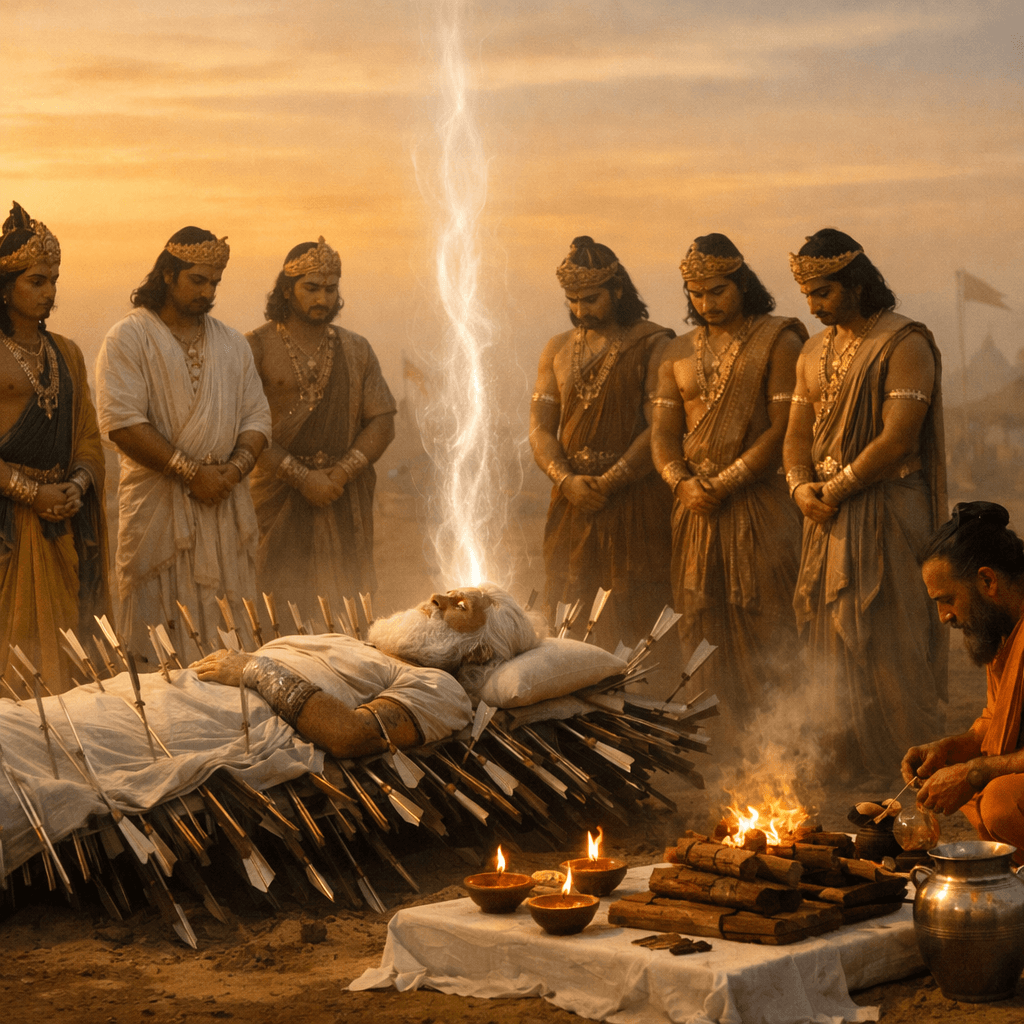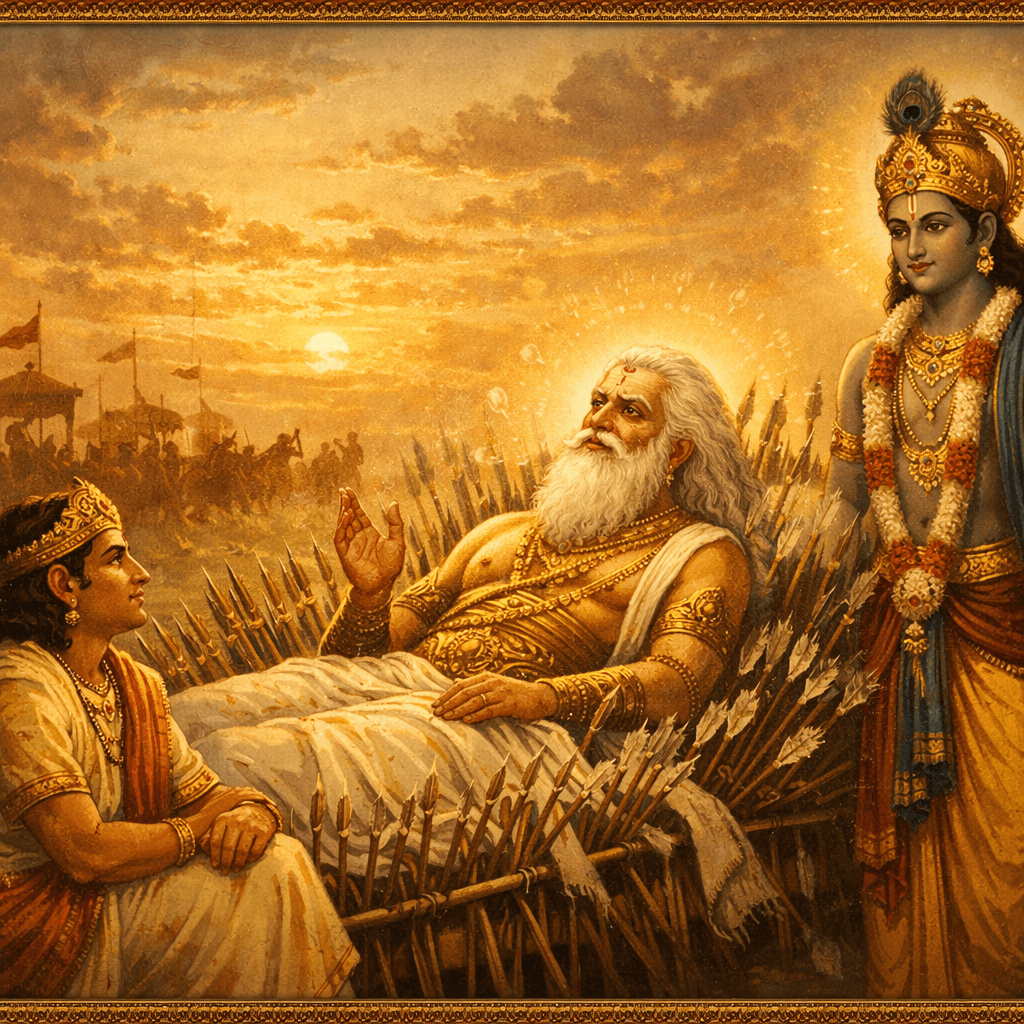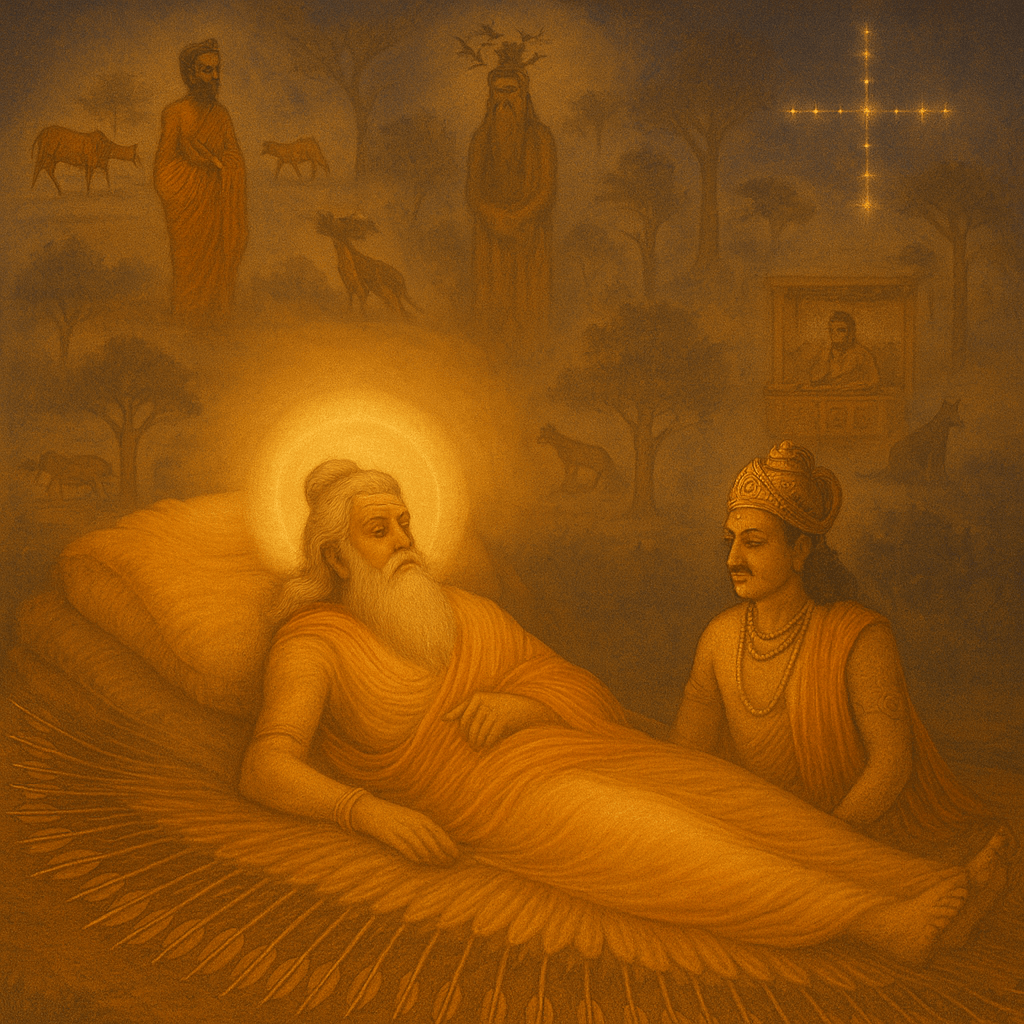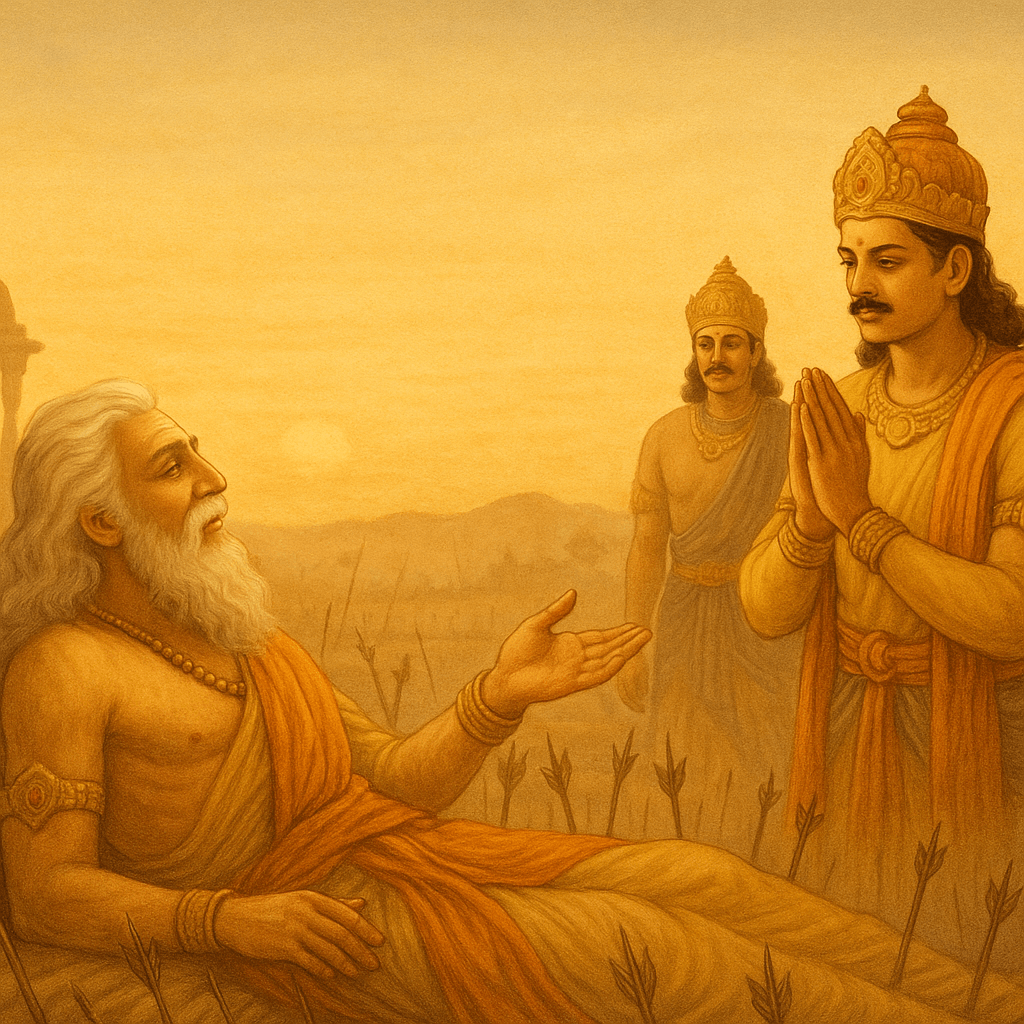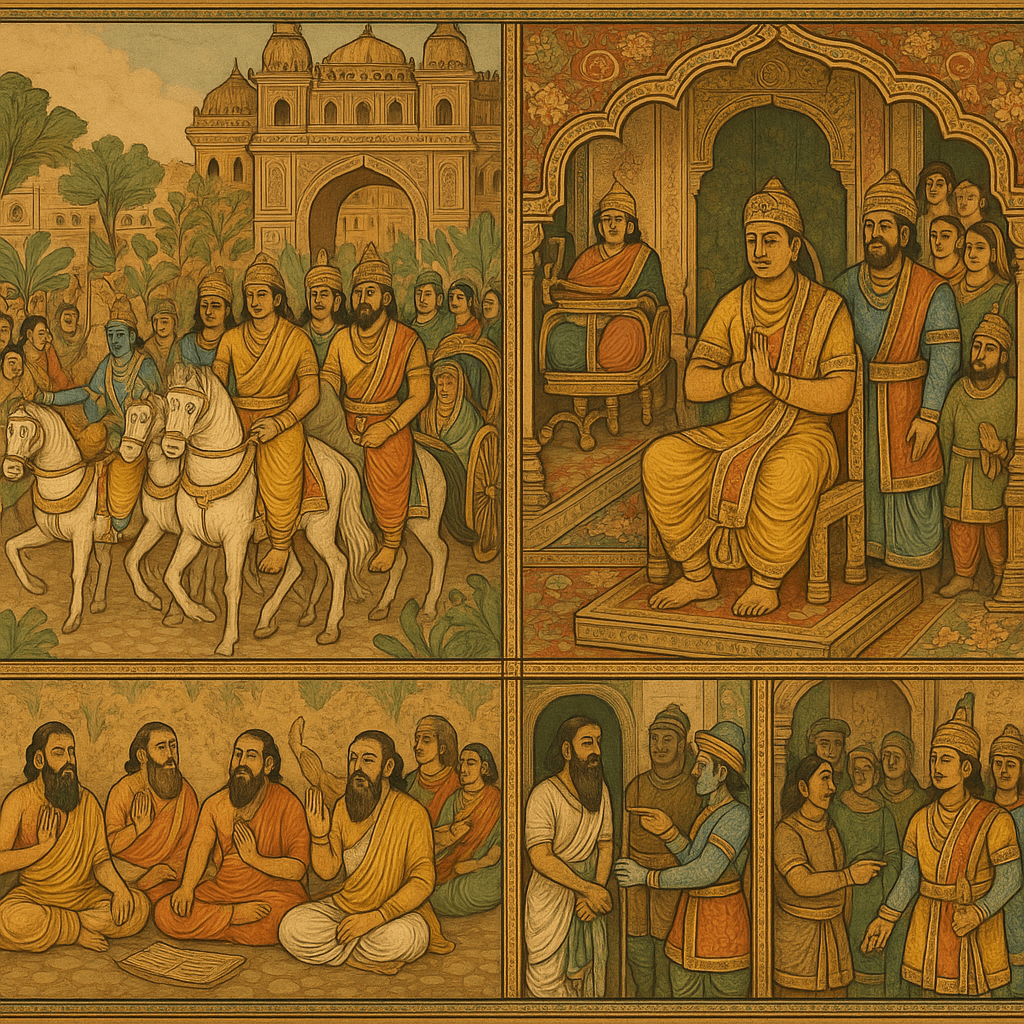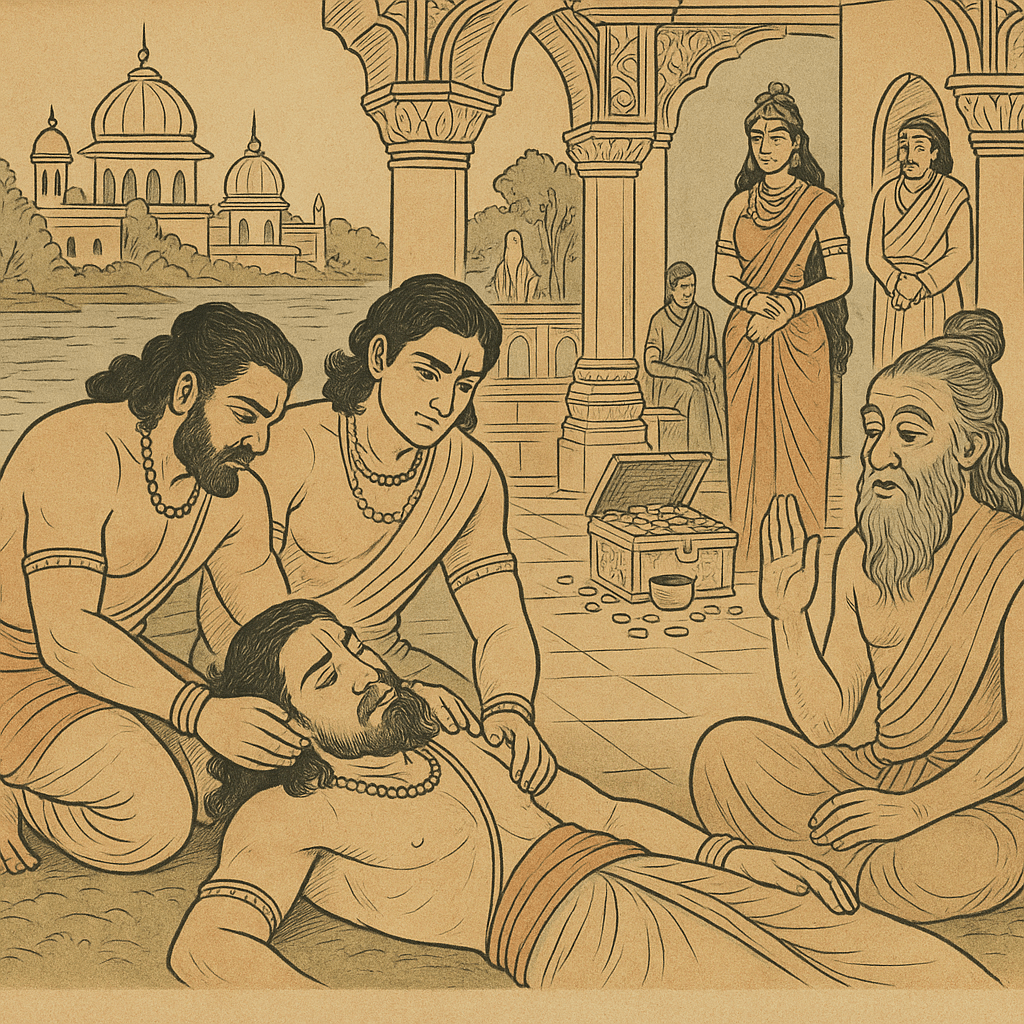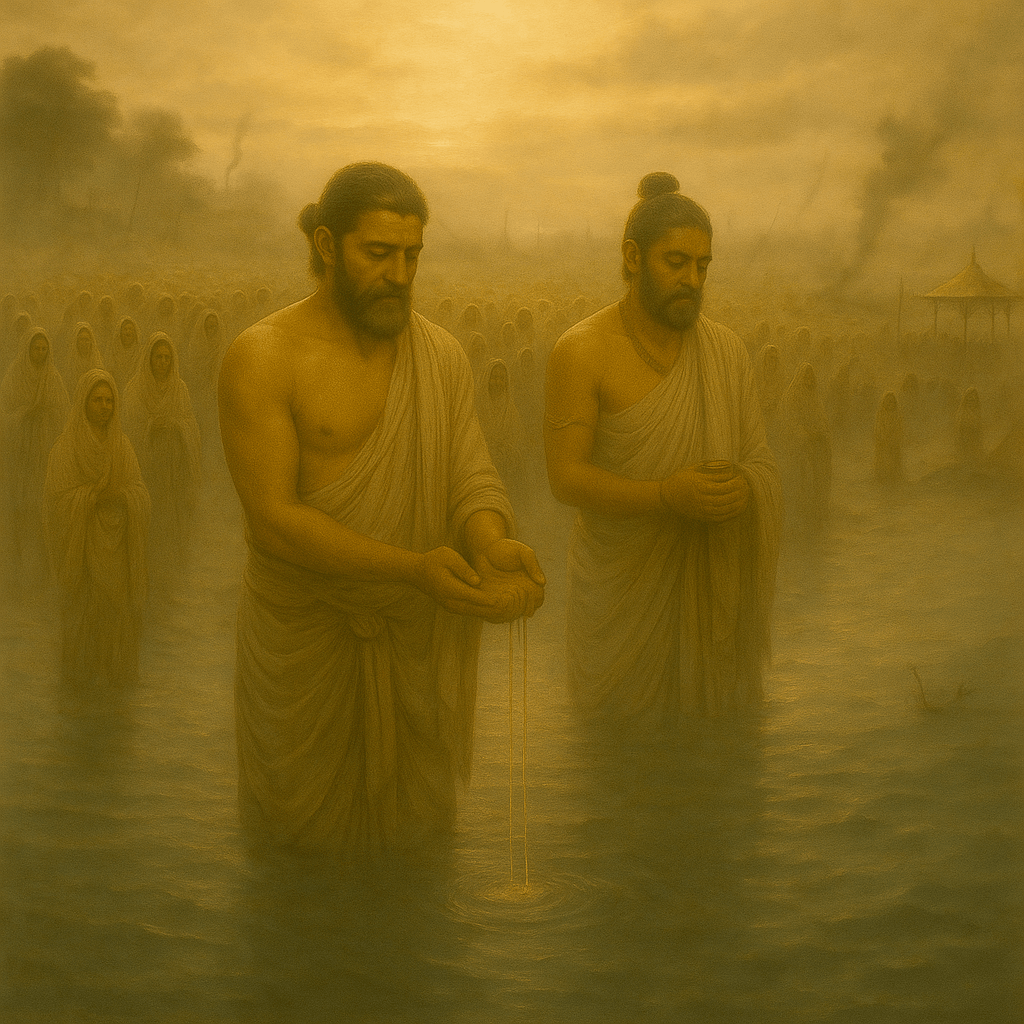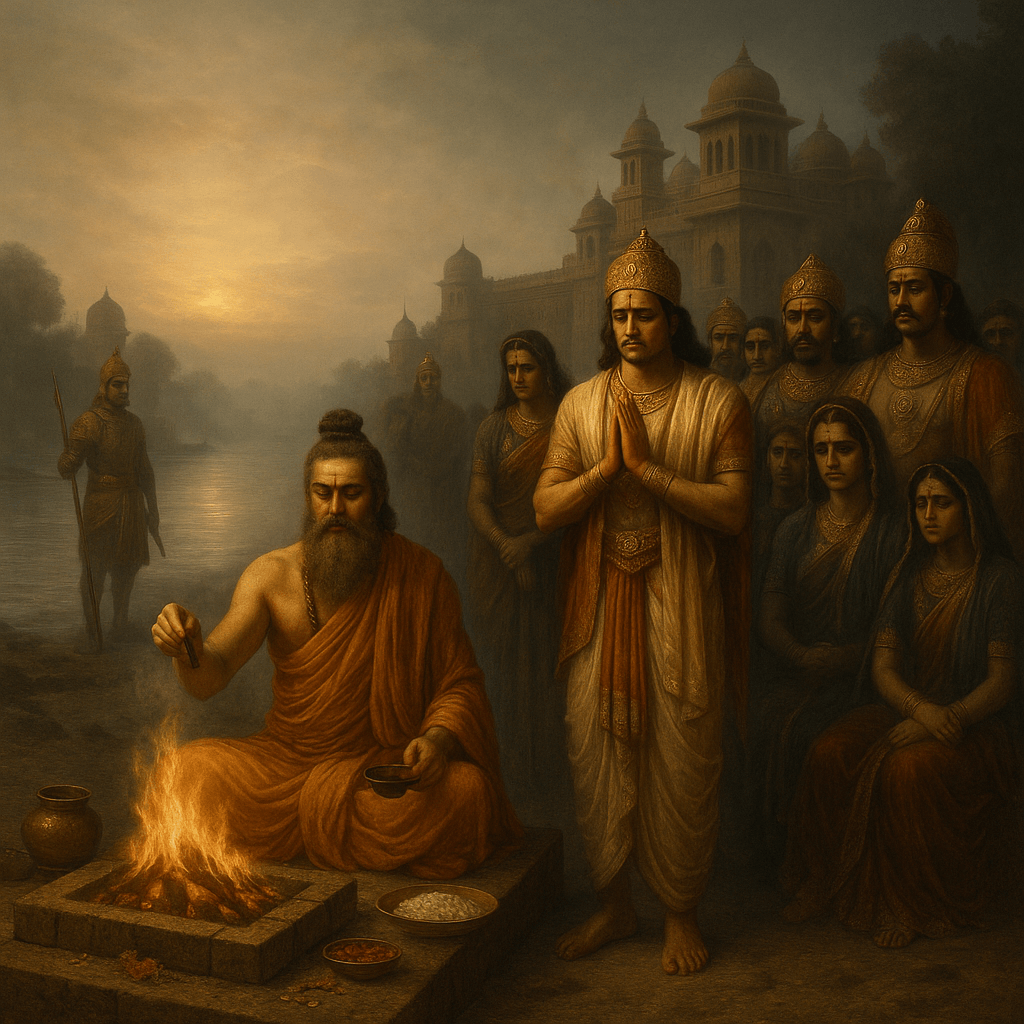Babruvahana Parva is the ninety-second Upa Parva included in the fourteenth Maha Parva, named as Ashvamedhika Parva. Vaishampayana continued narration to Janamejaya in reply to his queries as follows.
How many Upaparvas are there in the Ashvamedhika Maha Parva?
Ashvamedhika Maha Parva contains two Upa Parvas. They are Ashvamedhika Upa Parva and Babruvahana Upa Parva. In this second Upa Parva, the yaga was completed.
How were the preliminary preparations done, and how did it succeed?
Similar to the preparations done for the past Rajasuya yaga, the Pandavas had done the preliminaries under the guidance of Vyasa. Arjuna had moved to various directions to collect movable assets, wealth and food for the yaga ceremonies.
Arjuna had not interfered in the freedom of any kingdoms but assured, under Sanatana Dharma, absolute freedom to all, with law and order. Protection was guaranteed for life on the entire earth for the righteous. The horse was followed by Arjuna with protocol, but with few soldiers. Krishna had supported the Pandavas to conduct the Ashvamedha yaga, pleasing all the angels and people.
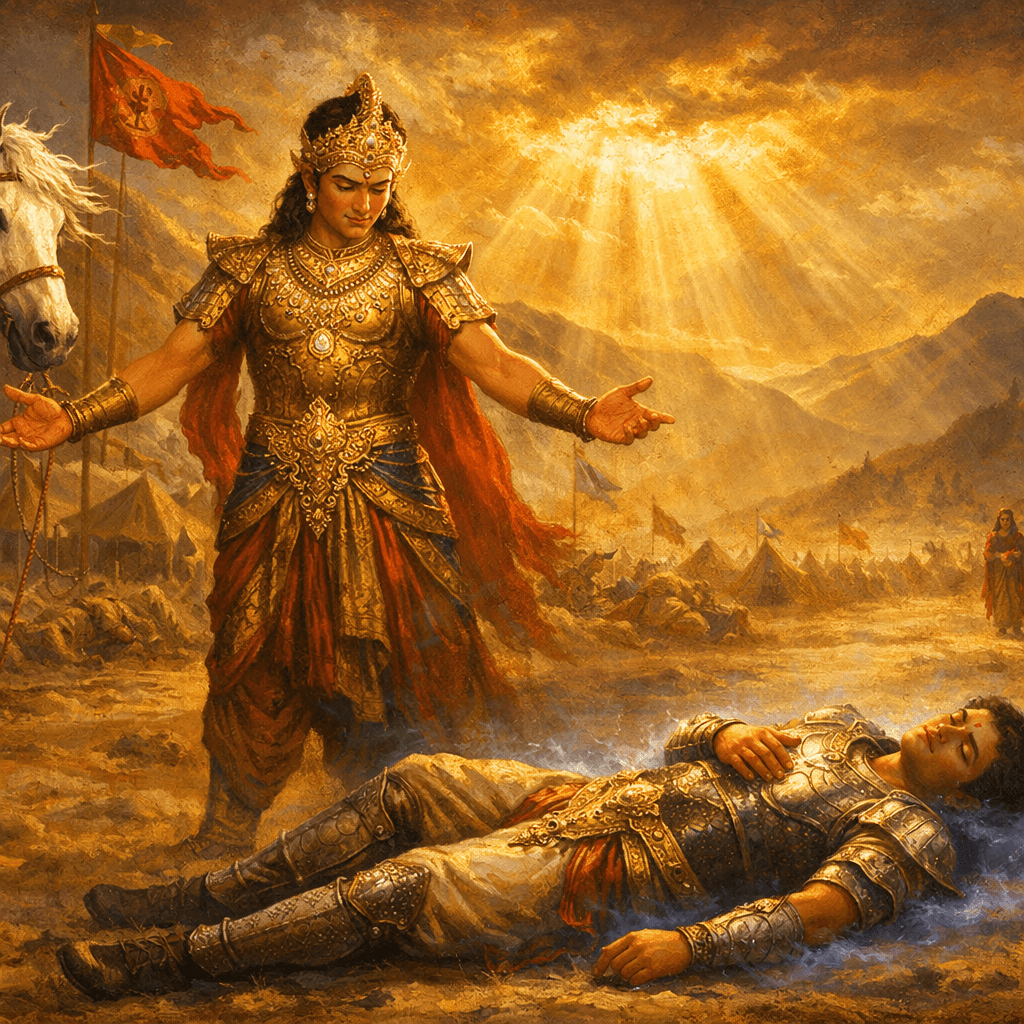
Why did Krishna instruct Yudhishtira to conduct the Ashvamedha yaga?
Krishna knew that some of the minor children of the deceased kings would be crowned after the Mahabharata war ended. Out of the eleven Akshohini soldiers who visited Kurukshetra, none of them were alive, but the reserve troops in the respective palaces were protecting their kingdoms, with princes being babies. It was necessary for the smooth administration of Yudhishtira to invite them all, honour them as justified by law and orders by means of an Ashvamedha yaga.
Hence, for the purpose of Ashvamedha, Arjuna was sent with the ‘free-horse’ with a small troop of soldiers for protection. All the opposing kings were brought in line under his protection, removing their hidden misunderstandings. It was a subject of Krishna for satisfying Chitrangadha and Babruvahana. They were invited to Hastinavati.
